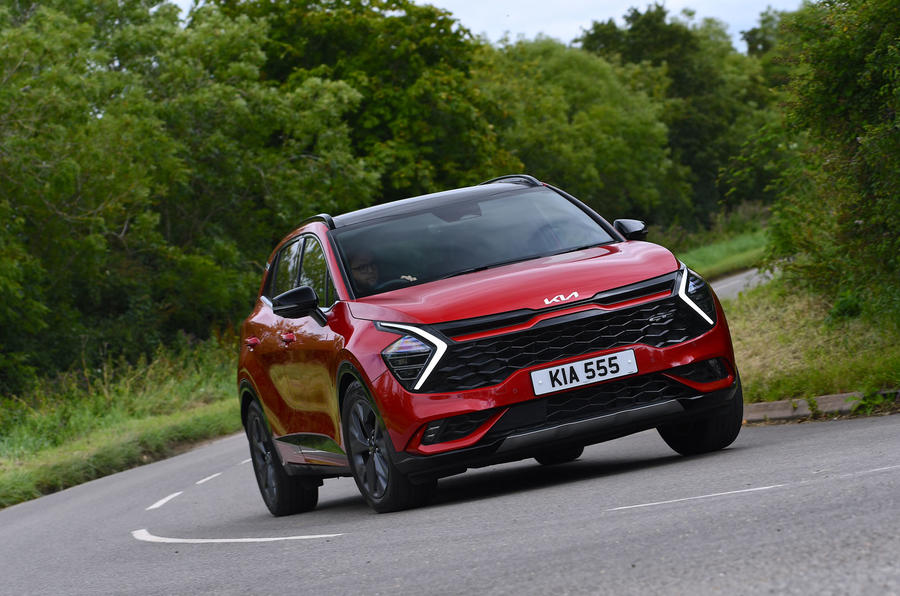Kia will add more hybrid cars to its ranks over the coming years in response to faltering global uptake of electric cars.
In a bid "to manage fluctuation in EV demand" and to cater for a forecasted increase in sales of electrified combustion cars, Kia will launch nine new hybrids by 2028 "across most major model lines globally".
It didn't say which model lines specifically will be hybridised, nor did it say whether the total includes both full hybrids and plug-in hybrids.
The Korean brand's objective of selling 1.6 million electric cars annually by 2030 is unchanged, it said at its annual investor conference yesterday, but it acknowledges that EV sales growth is "slowing due to economic downturn, subsidy cuts and lack of charging infrastructure".
In light of that, Kia forecasts that hybrids will make up 20% of its global sales in 2030 - up from an estimated 14% in 2024. Its proportion of EV sales will rise from 10% to 38% over the same period, it estimates.
Overall, electrified vehicles are estimated to account for 58% – or roughly 2.48 million units – of Kia's global sales by 2030.
However, those percentages vary significantly according to different regions. In the US and Canada, for example, Kia forecasts that 35% of its sales will be hybrids in 2030, while that figure will be just 12% in the EU.
In Kia's home market of Korea, hybrids are expected to be the best-selling form of powertrain at the end of the decade, taking 43% of the brand's sales, compared with 41% for EVs and just 16% for pure-ICE cars.
Hybrids currently account for just 1% of Kia's sales in China, and it will stop selling them there completely by 2030, leaving it with a 53:47 sales split between EVs and pure-ICE cars.
Kia has also pledged to develop a new generation of hybrid powertrain with "enhanced power and fuel efficiency" in a bid to "diversify" its product offering.
There will be two versions of this new powertrain: one for "subcompact and mid-sized" cars and another for large vehicles.
"To ensure cost competitiveness and production flexibility", Kia will build the new hybrid powertrains alongside its existing combustion engines.
Ho Sung Song, Kia president and CEO, said: "Following our successful brand relaunch in 2021, Kia is enhancing its global business strategy to further the establishment of an innovative EV line-up and accelerate the company’s transition to a sustainable mobility solutions provider.









Join the debate
Add your comment
EV sales are still growing globally, despite the recession and cost of living crisis. That's what the stats say. Some manufacturers are wobbling as they struggle to transition, but cheaper Chinese EVs are just arond the corner. Economic woes will cause bumps in the road, but the long-term mega-trend is still towards electrification. The companies that revert back to combustion engines will ultimately lose, just as Nokia, Kodak, horse carriage manufacturers and a host of others did when their sectors were disrupted.
People love to bash the UK and the UK government ( deservedly so ). They also love to use Brexit as the excuse for all evil. Been saying it from day one, people who have that 'rip off Britain' attitude to everything should open their eyes beyond the white cliffs of Dover because the truth is, we're no different to any other part of the world.
...but it ( KIA ) acknowledges that EV sales growth is "slowing due to economic downturn, subsidy cuts and lack of charging infrastructure".
In other words, the exact same problems we're experiencing in the UK are happening all over the world.
Perfect example of excellent vehicles being let down globally by incompetent planners and governments who can't see beyond the next election, so nothing with 5+ years gets done with charging infrastructure. Even the EV paradise in Norway now has issues.
What issues, cleaner air maybe.